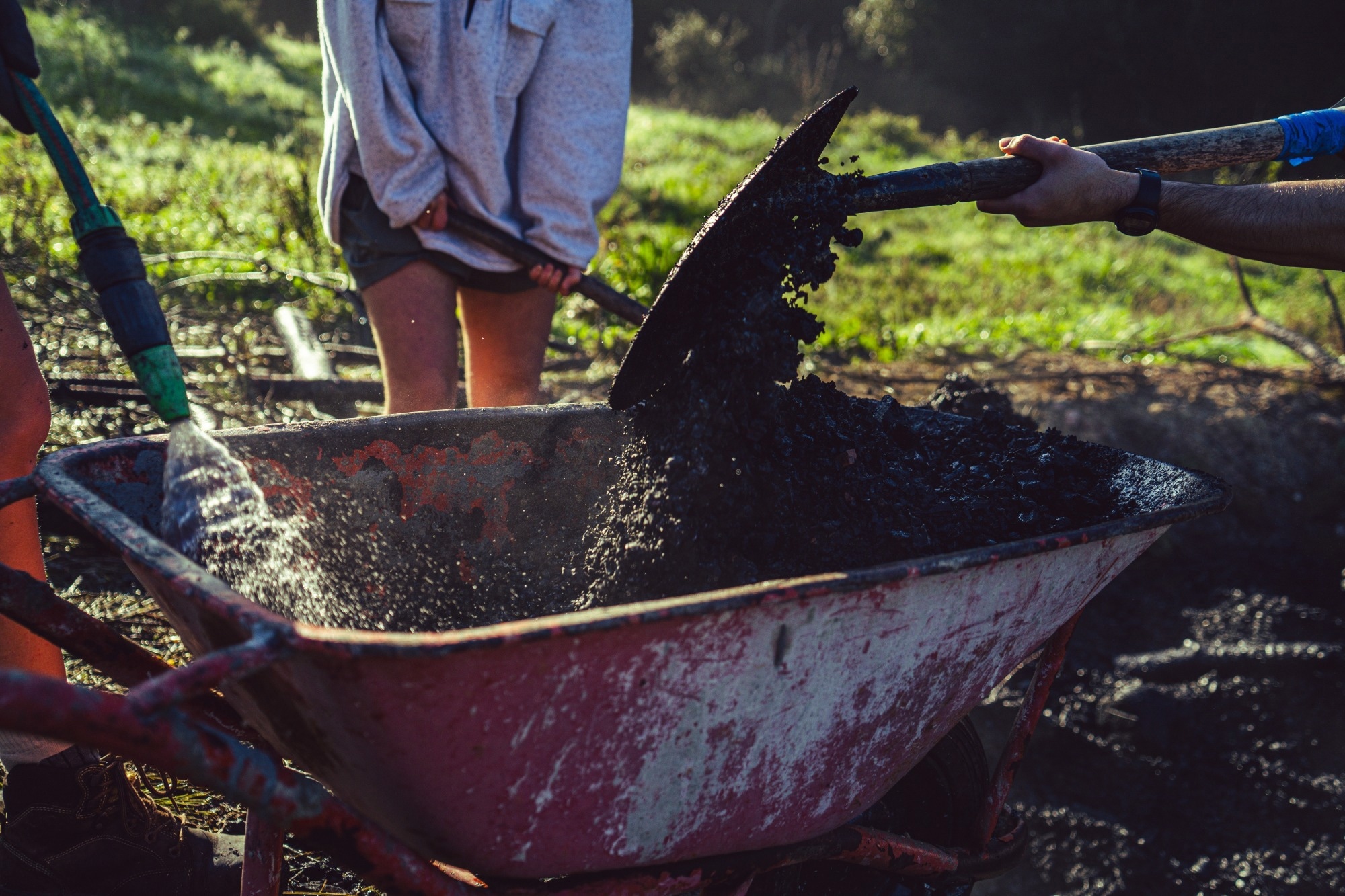Aston University and construction company Miles Macadam are collaborating to develop more sustainable road surfaces. They aim to replace fly ash, a waste product currently used in their products, with biochar—a material derived from organic waste. This initiative seeks to diminish reliance on imported materials and reduce CO2 emissions.

Image Credit: Marijn Bruinen/Shutterstock.com
The University has initiated a knowledge transfer partnership (KTP) with a Cheshire-based company specializing in the production and application of “grouted macadam,” a composite material comprising asphalt and cement used for surfacing roads and industrial areas.
A KTP is a collaborative initiative involving a business, an academic institution, and a highly qualified researcher, referred to as a KTP associate. This UK-wide program is designed to enhance business competitiveness and productivity by leveraging advanced knowledge, technology, and skills.
Aston University is a leading provider of KTPs, with 80 % of its completed projects receiving a rating of very good or outstanding from Innovate UK, the national innovation agency.
Miles Macadam incorporates fly ash, a byproduct from coal-fired power stations, into their surfacing products. However, due to the need for importing, the quality of this fly ash varies, leading to inconsistent supply. To address this issue, Miles Macadam is partnering with the University to explore a more sustainable alternative.
This is the first KTP we’ve been involved in and we’re very excited about it, as are many of our clients who are really keen for us to develop more sustainable products. Aston University clearly has the expertise we need to assess the different ingredients for our grouts and we’re looking forward to working with the team on it.
Andrew Scorer, Co-Director, Miles Macadam Ltd
The project will investigate the utilization of biochar, a carbon-rich substance derived from processing organic materials like wood or agricultural waste at high temperatures. Employing waste materials not only conserves virgin resources but also diminishes costs and reliance on imported materials.
The team will manufacture and evaluate hardened grouts for water absorption and strength, assessing their ability to endure heavy loads. Leveraging Aston University's specialized environmental testing facility, they will simulate prolonged cycles of freezing and thawing to replicate real-world weather conditions.
Following the identification of the most promising materials, field tests will be conducted at a Miles Macadam site to validate their performance under actual conditions.
The company chose to partner with Aston University because of its expertise in researching alternatives to fly ash and assessing their effects on product handling and final properties.
This project ambitiously aims to replace traditional cementitious materials with biochar, significantly reducing CO2 emissions in the process. My role involves steering the project towards sustainable and practical outcomes, mentoring the associates involved, and ensuring a productive exchange of knowledge between academia and industry.
Dr. Moura Mehravar, Lead Supervisor and Principal Investigator, Aston University
Dr. Moura Mehravar adds, “This endeavor highlights our dedication to sustainable construction practices and places us at the forefront of efforts to reduce environmental impact within the construction industry. Through this project, we aim to discover innovative solutions that contribute to a greener future while advancing our understanding and use of alternative construction materials.”
Professor Mujib Rahman, a chartered engineer with over 20 years of industry experience, including five years focused specifically on the field, is the leading academic in this project. He heads the Department of Civil Engineering at Aston University and has extensive research expertise in the fundamental characterization of asphalt and concrete materials.
This project brings together different expertise from across the University’s School of Engineering and Applied Sciences to help Miles Macadam future proof their products and reduce their and their clients’ CO2 emissions. It’s going to be fascinating to look in depth at the properties of biochar and see not only how it can work for Miles Macadam’s particular needs, but also how it might be used in many other situations as well. There is huge potential for this sustainable product.
Professor Mujib Rahman, Chartered Engineer, Aston University
The third member of the research team is Dr. Jaiwei Wang, who leads the Department of Chemical Engineering and Applied Chemistry.
Collaborating with KTP Associate Payam Sadrolodabaee, they will conduct laboratory experiments to assess the compatibility of alternative materials with asphalt and concrete grouts.
The project is scheduled to span 30 months, concluding in July 2026.